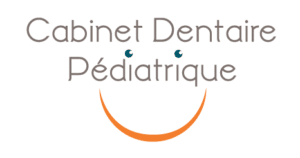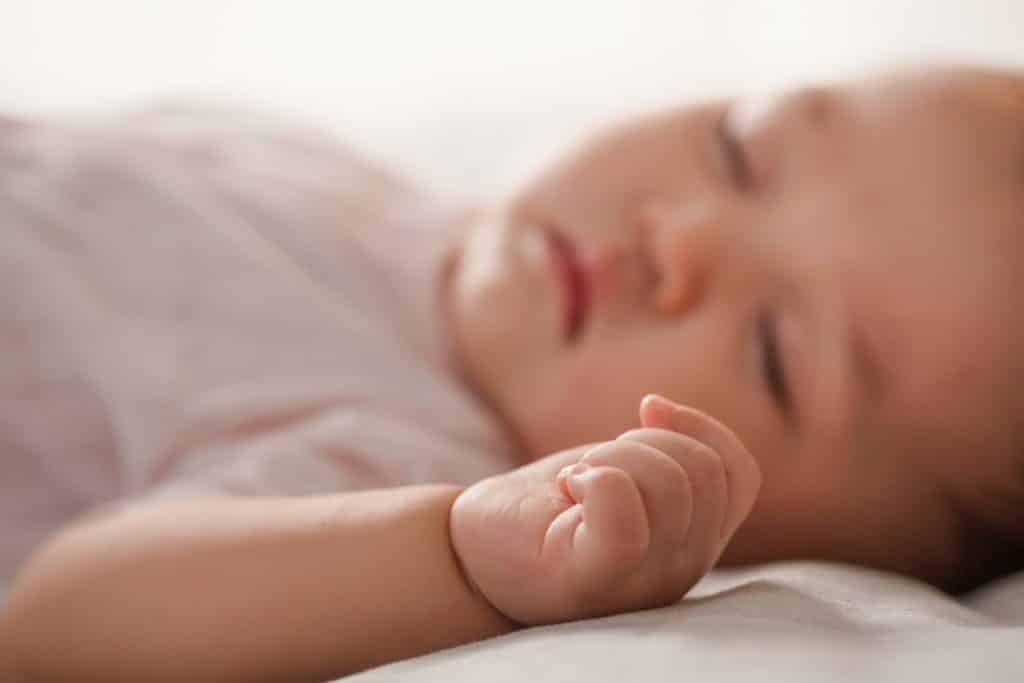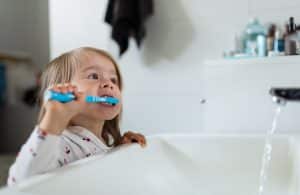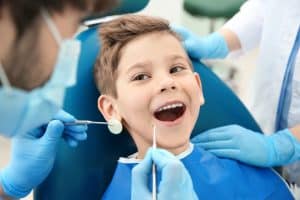Sleep apnea is a breathing disorder that affects between 5 and 7 % of the population. Young children and babies can also suffer from sleep apnea.
Adverse health consequences may develop without proper treatment.
Find out everything you need to know about this breathing disorder and what treatments are available to treat sleep apnea in babies and young children.
What is sleep apnea?
Sleep apnea is a sleep disorder that causes breathing to be blocked, partially or completely, repeatedly during sleep.
This condition is caused by narrowing or obstruction of the upper airway during sleep.
Sleep apnea symptoms in children
Sleep apnea symptoms can occur at any age. It is very common for this disorder to go undiagnosed for many years.
There are several signs of sleep apnea in children during sleep:
- Pauses in breathing,
- Restless sleep,
- Snoring,
- Mouth breathing,
- Night sweating,
- Sniffles,
- Bedwetting,
- Sleepwalking.
Note that while snoring is almost always present in adults with sleep apnea, young children can have sleep apnea without snoring during the night.
All of these symptoms prevent children from getting a good night's sleep.
Some signs are therefore observable at the time of waking up and during the day:
- Difficult awakening,
- Difficulty concentrating,
- Decline in school grades,
- Increased stress,
- Abnormal weight gain,
- Hyperactivity.
What are the consequences and dangers of sleep apnea?
The quality of a child's sleep is altered by sleep apnea. This usually results in hyperactivity during the day, behavioral problems and difficulty concentrating.
In some rare cases, sleep apnea can lead to serious complications:
- Delayed growth,
- Hypertension,
- Heart problems,
- Significant weight gain.
Sleep apnea in babies: before treatment
There are many causes of sleep apnea in babies and children. In order to provide the appropriate treatment, it is essential to first identify the origin of the problem.
What are the possible causes?
One of the most common causes of sleep apnea in young children is enlarged tonsils and adenoids. These glands at the back of the throat can narrow the airway when enlarged.
Children who are obese, have nasal allergies or were born prematurely are also more likely to have sleep apnea.
The diagnosis
The first person to consult if sleep apnea is suspected is your pediatrician or your child's doctor.
The doctor collects as much information as possible about the child's sleeping habits from the child and his parents. He also analyzes any symptoms observed during the day and night.
The doctor may perform a physical examination of the child's neck, mouth and throat. The goal is to detect physical features that may be the cause of sleep apnea.
A polysomnography may be performed if the physician feels that other tests are required. This is an observation of the patient's body functions during sleep.
This painless examination is performed in a sleep clinic and offers the most reliable results.
The elements observed during a polysomnography are the following:
- Respiratory and heart rate,
- Oxygen level in the blood,
- Snoring,
- Body movements,
- Sleeping positions,
- Eye movement,
- Brain activity.
A sleep test can be done at home. However, it is preferable to perform the test in a clinic, especially for young children.
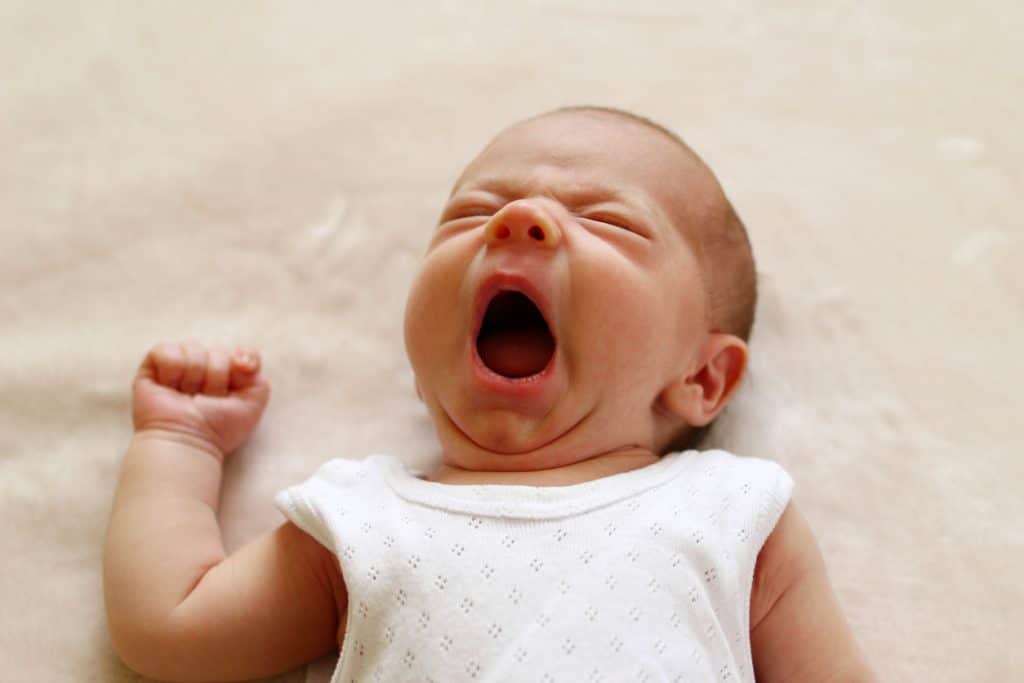
Sleep apnea in babies and children: treatments
Depending on the cause of the sleep apnea, the doctor may refer the patient to a specialist who can provide the most appropriate treatment.
Treatment of sleep apnea due to swollen vegetations
Sleep apnea in babies and children is very often due to swelling of soft tissues in the nose or throat (adenoids, tonsils, etc.).
Due to illness, these dilate and prevent air from circulating normally.
If this is the cause of your baby's sleep apnea, your pediatrician will recommend an appropriate treatment to allow the vegetations to deflate. If necessary, he or she may also refer you to an ENT specialist.
In the most severe cases, the treatment can consist, for example, in the removal of the child's tonsils.
Treatment of sleep apnea in premature babies
In babies born before 8 months of age, it is not uncommon for their airway to be immature. Because the nose or throat is not fully formed, the child may be prone to sleep apnea.
Depending on the origin of the problem identified, the treatment varies:
- Respiratory stimulation,
- Treatment of an underlying disorder,
- Ventilation with a balloon mask,
- Continuous positive airway pressure (for the most severe cases).
Treatment of sleep apnea following a health problem
In rarer cases, sleep apnea in a baby or child is caused by a hereditary or health problem:
- Allergies,
- Overweight or obese,
- Asthma,
- Neuromuscular diseases.
The appropriate treatment will then depend on the origin of the problem. After identifying the underlying health problem, your pediatrician will be able to refer you to the appropriate professional:
- Allergist,
- Pulmonologist,
- Dietician,
- ENT,
- Physiotherapist,
- Etc.
Treatment of dental problems
Finally, sleep apnea in children can be caused by the presence of maxillofacial anomalies.
Poor jaw or dental growth can lead to tongue misplacement or sleep apnea.
Conversely, some symptoms of sleep apnea such as mouth breathing or poor head positioning during the night can also cause teething problems.
In order to correct these anomalies, treatment can consist of lingual rehabilitation with a speech therapist or orthodontics.
Some braces also create more space in the child's mouth to improve airflow into the airway.
A pedodontist in Paris, Dr. Agachi treats sleep apnea in children related to maxillofacial problems. A dental surgeon by training, she specializes in stress management and non-invasive treatments for children. For any appointment request, please contact us.
